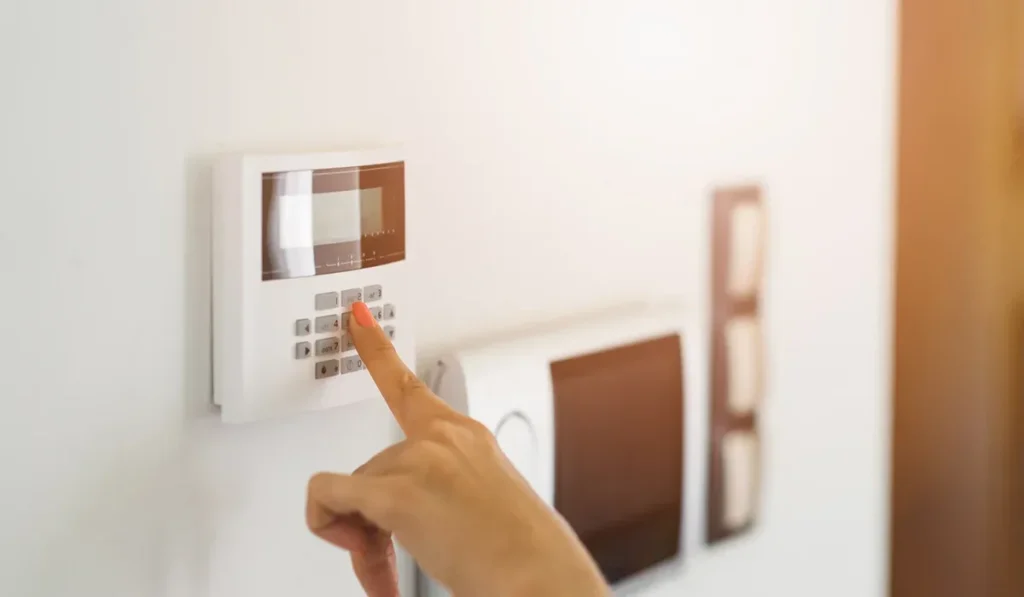Choosing the best home security system can be overwhelming. With so many choices and wide price ranges, it’s hard to know where to begin.
You might feel pressured to pick the most expensive option, thinking it must be the most reliable. That belief can lead to unnecessary spending and still leave gaps in your setup.
But here’s the truth: cost doesn’t always equal quality. In this article, we’ll help you understand what really matters so you can choose a system that fits your needs and your budget.
Price vs. Performance: Does Cost Reflect Quality?
It’s tempting to believe that a higher price means better performance. In some industries, that can be true. However, when it comes to the best home security system, cost alone doesn’t guarantee better safety.
Some expensive systems offer features you might never use. For example, facial recognition or motion-triggered lights might sound great. But do you need them? If you live in a quiet suburb, basic cameras and alarms might work just fine.
Budget-Friendly Options Can Be Reliable
Today, many affordable systems are smart, efficient, and easy to install. In fact, some even outperform high-end models in real-world conditions. So why pay extra when affordable choices already offer what you need?
Also, modern technology is more accessible than ever. As a result, even low-cost systems can come with mobile apps, real-time alerts, and Wi-Fi compatibility. This is good news for homeowners who want the best home security system without breaking the bank.
What Features Truly Matter?
It’s important to focus on what you need. Do you want indoor cameras, outdoor ones, or both? Would door and window sensors be helpful? What about smoke or carbon monoxide detectors?
Make a list of your must-haves. Then, compare models based on those features, not just their price tags. This method ensures you’re investing in the right tools instead of spending on things you may never use.
Monthly Fees Add Up
Moreover, some systems seem affordable upfront but require costly monthly subscriptions. These fees cover monitoring services or cloud storage. Before you buy, always ask: “What’s the long-term cost?”
Sometimes, the best home security system is one that doesn’t tie you to ongoing payments. If you’re okay managing the system yourself, self-monitoring options could save you hundreds each year.
Customer Service and Ease of Use Matter
Another key factor is user experience. If a system is too complicated, you won’t want to use it. That defeats the purpose. Many mid-range models offer great support, simple interfaces, and easy setup. These systems may not have every feature, but they get the job done well.
In addition, good customer support can be priceless during emergencies. So it’s wise to read reviews and see how each brand handles issues.
Security Shouldn’t Be Stressful
Everyone wants peace of mind. However, stressing about high costs or complicated tech can take away that peace. That’s why simplicity and affordability go hand in hand with comfort.
If a cheaper model lets you sleep better, then that’s the best home security system for you. It’s not about impressing anyone it’s about feeling safe in your own home.
Marketing Can Mislead You
Companies spend big money to market their products as “premium” or “elite.” But marketing doesn’t always reflect reality. Just because something looks sleek doesn’t mean it works better.
Also, many brands charge extra just for name recognition. Always look past the logo. Compare specs, reviews, and performance data. That way, you’re paying for value, not just branding.
DIY vs. Professional Installations
Professional setups can be costly. They may require drilling, rewiring, and multiple visits. However, DIY choices allow you to avoid paying labor costs. Most DIY kits are easy to install using simple tools and mobile apps.
Additionally, DIY systems offer flexibility. You can move them, upgrade parts, and troubleshoot issues on your own. So, for many people, this makes DIY the smarter choice.
Wireless Is the New Standard
Years ago, wires were necessary. Now, wireless systems are just as reliable sometimes even better. They’re easier to install and don’t require tearing up walls.
Moreover, wireless setups work well in rental homes and apartments. If you move, you can take your system with you. That’s not possible with many wired models. In short, wireless might be the future of the best home security system.
Value Comes from Function, Not Flash
It’s easy to fall for shiny extras, like smart speakers or stylish interfaces. But those don’t always help with safety. A camera that works well at night is more valuable than one that talks to your fridge.
Also, some premium systems come with long contracts. You may be subject to significant costs if you want to cancel. This is another reason to focus on what you need.
Look for These Qualities Instead of Price
When shopping, focus on features that truly matter:
- Fast mobile alerts
- Easy-to-use apps
- Reliable battery backup
- Weather resistance
- High video quality
These things improve your home’s safety. They also improve your day-to-day experience.
If a $150 system offers all of that, why spend $500?
Conclusion
So, is the best home security system always the most expensive one? Not. While price can hint at quality, it doesn’t tell the whole story.
Instead, choose a system that fits your space, lifestyle, and budget. Also, pay attention to reviews, ease of use, and long-term costs. You’ll find that real value comes from matching your needs with the right features.
Sometimes, the perfect setup is also the most affordable. And that’s perfectly okay.
Need expert advice on choosing the right setup? Want help comparing options that work with your budget? IHR Security is here to guide you every step of the way.
FAQs
Q1: What is the average cost of the best home security system?
A: Prices vary depending on features and the level of service. Many reliable systems range between $100 and $300 for the initial setup. Some packages include door sensors, motion detectors, and a control panel. If you choose professional monitoring, monthly fees can range from $10 to $50. Custom systems with cameras or smart integration may cost more, but they offer better protection and convenience.
Q2: Can I install a security system myself?
A: Yes, many modern systems are designed for DIY installation. They usually include pre-programmed devices, peel-and-stick mounts, and easy-to-follow instructions. No wiring or technical knowledge is required. This makes them great for renters or homeowners who want to save on installation costs. However, larger homes or more complex setups may still benefit from professional help.
Q3: Do expensive systems work better?
A: Not always. Some affordable systems offer excellent reliability and performance. The key is to choose features that match your specific needs. For example, a basic system may be perfect for a small apartment, while a larger home might need cameras or smart locks. Reviews and product comparisons can help you find quality systems without overpaying. Paying more doesn’t always guarantee better security.
Q4: Should I get a monitored or self-monitored system?
A: It depends on your preferences and budget. A monitored system connects to a security company that contacts emergency services when needed. This adds peace of mind but comes with monthly fees. Self-monitored systems alert you through your smartphone, giving you more control and no ongoing costs. If you travel often or want professional backup, monitored is the safer choice.
Q5: Are wireless systems safe?
A: Yes, today’s wireless security systems are very safe and reliable. They use encrypted signals to prevent hacking and interference. Wireless systems are also easier to install and more flexible to expand. Battery backups keep them running during power outages. With proper setup and strong passwords, wireless systems offer excellent protection for most homes.



